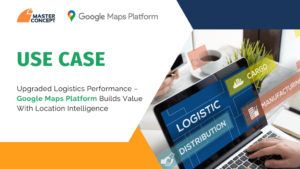In today’s world, software is an increasingly important tool for transportation and logistics companies looking to improve the efficiency of their business. Regardless of the size of the company, logistics and transportation management software can automate routine tasks and streamline processes, reducing time and improving quality of work.
If you are looking for a software solution for your transportation or logistics company, consider the following tools.
logistics and transportation
Vehicle Management Systems
Vehicle management systems (GPS) allow companies to track the location of their vehicles in real time. This is handy for route planning and cargo delivery, as well as for monitoring speed and fuel consumption. GPS systems can also help companies reduce the cost of transporting goods by reducing travel time and optimizing routes.
Warehouse Management
Warehouse management systems help companies keep track of inventory in the warehouse, control the movement of goods, and make the most efficient use of available space in the warehouse. This reduces the time it takes to locate and deliver the right products, reduce storage costs, and make the work of warehouse employees easier.
Order Management
Order management systems allow companies to automate the process of receiving and processing orders, speeding up the processing and delivery of goods. The system can automatically send notifications of order status to customers and process returns of goods. This helps reduce the time and cost of manual order processing and improve the customer experience.
Shipment Management Systems
Shipment Management Systems (TMS) allow companies to manage the shipment process, track shipments and optimize routes.
In general, voice recognition technology as well as machine learning, neural networks, and artificial intelligence have already proven to be effective in solving problems in the logistics industry. For example, voice recognition technology can be used to simplify transportation management processes, such as warehouse management and traffic monitoring, as well as to improve driver and pedestrian safety.
With machine learning and neural network technologies, it is possible to create intelligent systems that can analyze data and make decisions based on that data. For example, such systems can be used to optimize delivery routes, manage inventory, forecast demand for logistics services, and analyze the market and competitive environment.
Integrating all of these technologies into a single system, such as transportation management, allows companies in the logistics industry to achieve a new level of efficiency and optimize their business processes. For example, such a system can manage the entire supply chain, including warehouse management, transportation, packaging, loading and delivery, as well as monitor the performance of all stages. This allows companies to significantly reduce turnaround time, improve service quality, and reduce logistics costs.
In addition, such systems can be useful for managing large warehouses, where it is necessary to track the location of goods, manage the movement of goods, and control packing and shipping processes. Artificial intelligence, machine learning, and neural network technologies can be used to optimize these processes and improve service quality.
In conclusion, the use of artificial intelligence and machine learning technologies can greatly benefit companies in the logistics industry, allowing them to improve the efficiency of their business.

